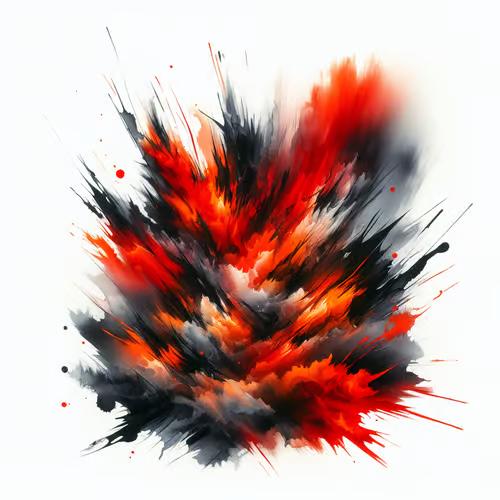February 23, 2022|כ"ב אדר א' ה' אלפים תשפ"ב Ki Tisa 5782 - What Makes Us Count?
Print ArticleAustrian Psychiatrist Viktor Frankl, a survivor of Auschwitz, is most famous for his book, Man’s Search for Meaning. In the book, which takes the reader through his experiences in the holocaust, Frankl develops the concepts which he would later use in his practice.
After the war, Frankl became the founder of logotherapy, a school of psychotherapy that describes a search for a life's meaning as the central human motivational force. According to Frankl, when a person is able to find meaning in his or her life, they can learn to live through even the most challenging of circumstances. As Frankl himself wrote: “He who has a why to live can bear almost any how”
And one of the central features of logotherapy, is the concept of Dereflection. Dereflection is a technique used to help the individual focus away from oneself and toward other people. The idea is that focusing on others allows the individual to become "whole" and to spend less time feeling preoccupied with their own problem or worry.
This is used to help individuals with anticipatory anxiety, encouraging them to focus on the needs of others, thereby fulfilling that desire for meaning. And, at the same time, taking one’s focus off of his or her anxiety.
The point, argued Dr. Frankl, is that when we can realize that our true value is found in that which we bring to others, we, in turn, feel better and more whole with ourselves.
We all want to be valued, and we all want to count. Yet, the Torah tells us this morning that even if we want to count, we should not be so quick to count others. As Parshas Ki Tisa opens, HKBH tells Moshe special rules of engagement for taking a census of Bnei Yisrael:
(יב) כִּי תִשָּׂא אֶת רֹאשׁ בְּנֵי יִשְׂרָאֵל לִפְקֻדֵיהֶם וְנָתְנוּ אִישׁ כֹּפֶר נַפְשׁוֹ לַיקֹוָק בִּפְקֹד אֹתָם
When you take a census of the Israelites according to their army enrollment, each shall pay to Hashem a ransom for himself on being enrolled,
And why should each person pay a certain amount of money, kofer, ransom?
וְלֹא יִהְיֶה בָהֶם נֶגֶף בִּפְקֹד אֹתָם:
So that no plague may come upon them through their being enrolled.
It seems clear from the pesukim themselves that counting the Jewish People is so dangerous that it could cause a plague. And, in fact, we find in Shmuel II a story where David HaMelech wanted to count the people. Yoav, his chief of staff, told him it was a bad idea. Nevertheless, David persisted, and in the end a terrible plague took place, as thousands of Jews died.
However, while the Torah does warn about the DANGER of counting the Jewish people, the Torah does not explain WHY? What is it about taking a census of Am Yisrael that is so dangerous?
Rashi writes that when one counts a NUMBER of anything, it invites the Ayin Hara. Meaning, when we say look at how much we have, we single ourselves out and imply there is something about our own personal abilities, it calls into question whether we deserve it.
Seforno explains that when we take a census, when we count the entire nation, it reminds us of change. Who is still here? Who is no longer here? And it raises the question: If I’m still here, by what merit am I here?
Rabbi Jonathan Sacks zt”l offers a beautiful explanation for this whole concept. Why do nations typically take a census? In order to know just how strong they are.
Whether it is regards to their military to know how many soldiers can be conscripted, their economy to know how many citizens are available to pay taxes, or any other practical purpose. Either way, “the assumption behind every census is: There is strength in numbers. The more numerous a nation is, the stronger it is.”
And this, argues Rabbi Sacks, is EXACTLY why counting Jews is so dangerous. We have always been and will always be a tiny People. And, in fact, that is how HKBH has always wanted us to be.
In Parshas Va’Eschanan, Moshe tells us:
(ז) לֹא מֵרֻבְּכֶם מִכָּל הָעַמִּים חָשַׁק יְקֹוָק בָּכֶם וַיִּבְחַר בָּכֶם כִּי אַתֶּם הַמְעַט מִכָּל הָעַמִּים:
It is not because you are more numerous than other nations that Hashem loves you. In fact, you are one of the smallest!
How, then, do you judge the value of our people if not based on our size? Writes Rabbi Sacks: “To this the Torah gives an answer of surpassing beauty. Ask Jews to give, and then count their contributions. Numerically we are small, but in terms of our contributions to civilization and humankind, we are vast”. Thus, the Torah tells us: yes, at times we will be required to count our nation. We will need to go to war and we must operate as any other society.
However, even as we count, we MUST make sure to ask everyone to GIVE. In order to remind ourselves that our value will never be found in our numbers but in our CONTRIBUTION TO OTHERS, what we are willing to GIVE.
Sir Moses Montefiore was a passionate, observant Jew who was also an extraordinary philanthropist and leader in Great Britain. One time someone asked him, “Sir Moses, how much are you worth?” Montefiore thought for a while and then answered with a specific amount of money. The person responded, “that’s impossible! Your wealth must be more than that!?” Montefiore responded: “You didn’t ask me how much money I own. You asked how much I am WORTH! So, I calculated how much money I gave to charity this year. Because we are worth what we are willing to share with others!”
Or, as Viktor Frankl writes: “Success, [results from] one's personal dedication to a cause greater than oneself or as the by-product of one's surrender to a person other than oneself.” Our real success is an outgrowth of what we are willing to GIVE.
We live in a world that constantly bombards us with the message that our VALUE depends on how many VALUABLES we have. If we can only have the right stuff, the newest phone or car, then we have value. And this is not only a message that comes at us from the outside world. It is a message that is all over the Orthodox Jewish world. Look at the ads in any frum newspaper, and one of the most common, if not most common word you will come across is “luxury”. Don’t get me wrong, it’s ok to have nice things. It can even help us have the calmness of spirit necessary to find success in the more meaningful areas of our lives. But we should not get to the point where our community sees luxury as a value in and of itself.
The truest of Torah values is to recognize that our true value will never be found in the things we have. It will be found in that which we are willing to give.




